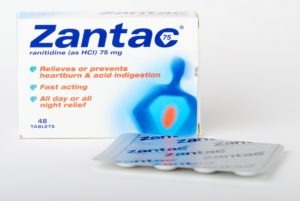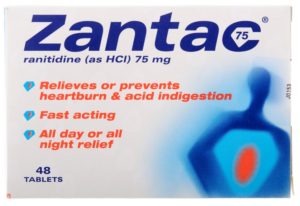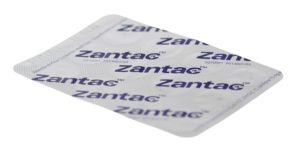Should I Be Concerned if I Took Zantac?
On September 13, 2019, the FDA announced that preliminary tests found low levels of NDMA in ranitidine, a heartburn medication that was used by millions of Americans. In October of 2019, the drug companies Novartis and Apotex announced that they were recalling their generic ranitidine products all over the United States.
Zantac, also known by the generic name ranitidine, was a highly popular drug that was used to treat stomach and esophageal ulcers. It was also used to treat gastroesophageal reflux disease (GERD) – a chronic condition where acid from the stomach comes back up into the esophagus, causing heartburn irritation and ulcers in different parts of the esophagus, throat or mouth.
For a free legal consultation, call (725) 900-9000
Zantac was recently removed from stores after it was discovered that the drug contained NDMA, which has been found to be a possible human carcinogen. Zantac is no longer sold in the United States. NDMA is a volatile organic compound that is known to cause cancer in animals based on testing on rats and mice. Because NDMA is currently classified as a possible human carcinogen, the link between NDMA and cancer in humans has yet to be established, but it is likely that it will be classified as a human carcinogen soon.
Zantac’s relationship with NDMA is unlike any other drug as Zantac has been found to be the only medication in which levels of NDMA may increase over time. This means the longer the drug is in the package before use, the more NDMA is in the medication.
Zantac use may associated with the following conditions:
- Bladder Cancer
- Breast Cancer
- Colorectal Cancer
- Esophageal Cancer
- Stomach Cancer
- Intestinal Cancer
- Kidney Cancer
- Liver Cancer
- Lung Cancer
- Pancreatic Cancer
- Prostate Cancer
- Other liver disease
If you exhibit any of the symptoms of various cancers that may be connected to the use of Zantac, it is important that you speak with your health care provider and let him know that you used Zantac. Symptoms to look for include blood in stool or urine, severe weight loss, unexplained rashes, dramatic changes in bowel habits, abdominal pain. or other symptoms involving the stomach, bowel or bladder.
Click to contact our personal injury lawyers today
While it’s very important to take warnings about Zantac seriously, it’s also important to understand that there is no concrete evidence as of yet that Zantac causes cancer in humans. However, that does not mean that there is nothing to be concerned about. The levels of NDMA in Zantac are alarming, but they still do not mean that you will definitely get cancer. More research on causation is needed to know for sure.
What Are the Chances of Getting Cancer?
Complete a Free Case Evaluation form now
So far, there is limited evidence that NDMA in ranitidine causes cancer. Scientists have not produced an absolute risk value. However, if you can demonstrate how your Zantac use led or contributed to the development of cancer you may be eligible to file a Zantac lawsuit. To prove this, Zantac would have had to have been a part of your long-term regimen for treating heartburn or a related condition and you would have had to have developed cancer while taking the medication.
So far, over five hundred federal Zantac lawsuits have been brought in Florida against the makers of the anti-acid drug. These lawsuits claim that Zantac caused a few types of cancer and that drug makers failed to warn the public about the cancer risk. Many more lawsuits are expected to follow.
For help in evaluating your cancer claim as it is related to Zantac, contact the Zantac attorneys at Van Law Firm. We can assist you in determining if you qualify to join the Zantac lawsuit. Consultations are always free, so call us today.
No obligation consultations are always free.
Let Us Help You! Call Now: (725) 900-9000


